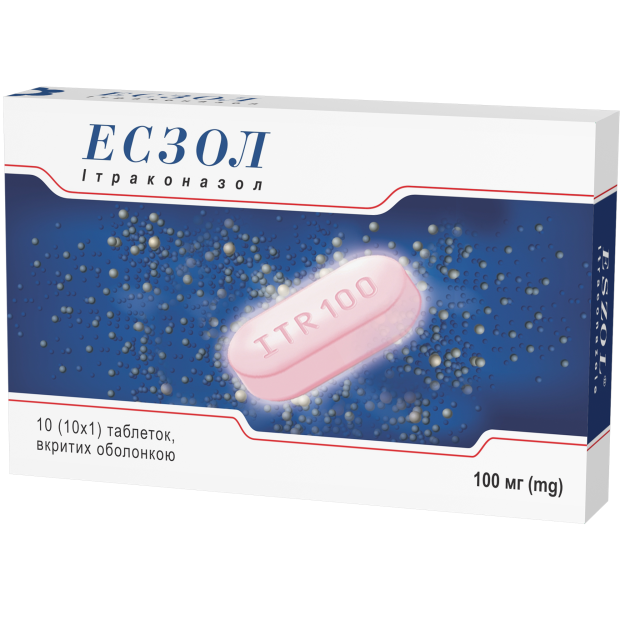The information in this section is intended solely for the medical and pharmaceutical industry and may only be used in professional activities.
ARE YOU A MEDICAL AND/OR A PHARMACEUTICAL WORKER?
(Choosing an answer, you are responsible for the accuracy of the information provided)
YES, I am a medical/pharmaceutical worker
NO, I am not a medical/pharmaceutical worker

Each tablet contains 100 mg of itraconazole
Vulvovaginal candidiasis; pityriasis versicolor; dermatomycosis caused by pathogens sensitive to itraconazole (Trichophyton spp., Microsporum spp., Epidermophyton floccosum), for example, dermatophytosis of the feet, inguinal dermatomycosis, dermatophytosis of the trunk, dermatophytosis of the hands; oropharyngeal candidiasis; onychomycosis caused by dermatophytes and/or yeast; histoplasmosis; systemic mycoses (in cases where first-line antifungal therapy cannot be applied or if treatment with other antifungal drugs is ineffective, which may be due to the presence of pathology, pathogen insensitivity or drug toxicity): aspergillosis and candidiasis; cryptococosis (including cryptococcal meningitis): treatment of immunocompromised patients with cryptococosis and all patients with central nervous system cryptococosis; supportive care in AIDS patients to prevent recurrence of the fungal infection present. Itraconazole should be used to prevent fungal infection in patients with prolonged neutropenia in cases where standard therapy is insufficient.



